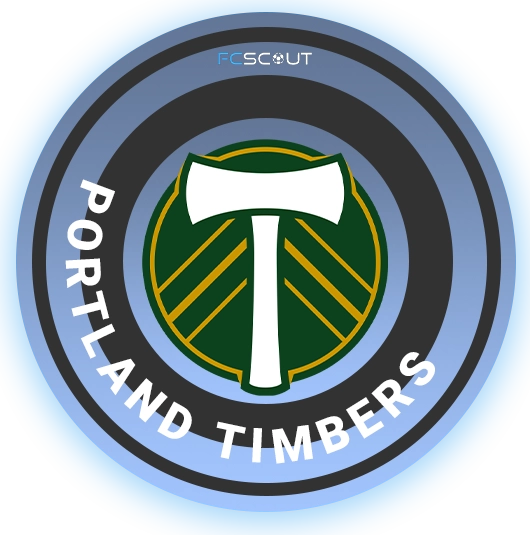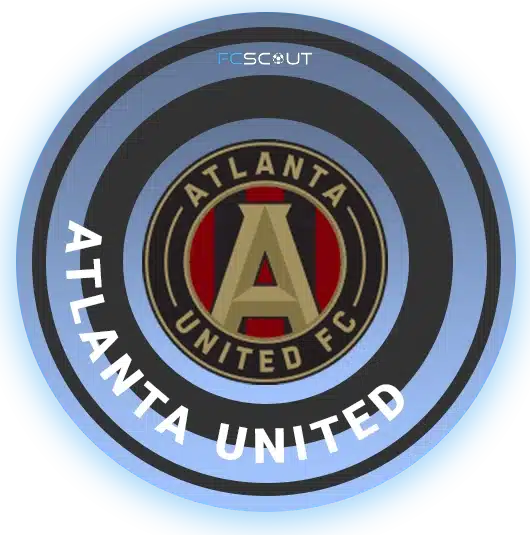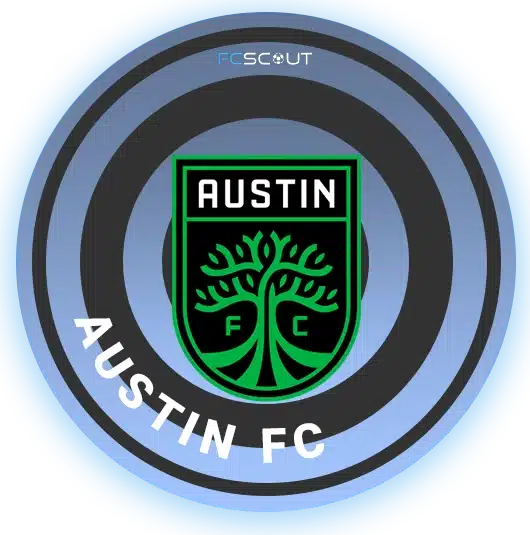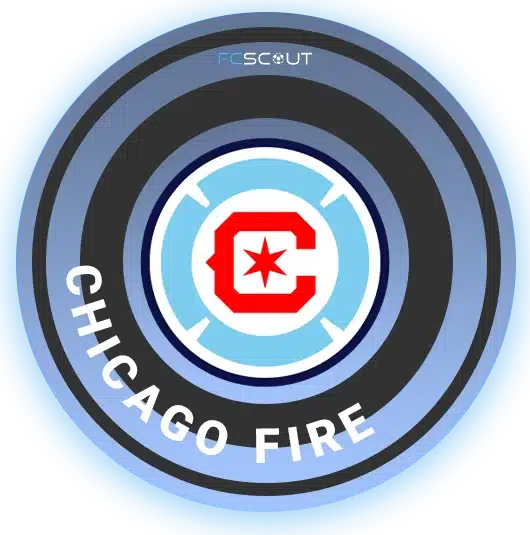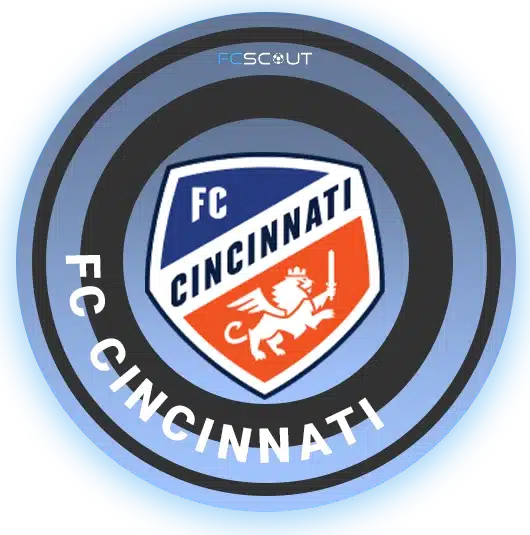PORTLAND TIMBERS CLUB GUIDE
History, Stadium, Players, and More!
Discover the world of soccer with fcscout.com, your go-to scout for club tryout information, club guides, player profiles, in-depth product reviews, and more.
1000+
team reviews of trending clubs
2M+
active users
annually
1000+
profiles in our player database
Explore
Portland Timbers
The Portland Timbers are an American professional men’s soccer club based in Portland, Oregon. The Timbers compete in Major League Soccer (MLS) as a member club of the league’s Western Conference.
Portland Timbers History
The Portland Timbers’ history dates back to the North American Soccer League (NASL) era, beginning their journey as a professional soccer club in 1975. Initially, the team captured the city’s heart with their dynamic style of play and immediate success on the pitch. In their inaugural season, the Timbers reached the Soccer Bowl, the NASL’s championship game, an impressive feat for a new team. Despite losing in the final, the early days set the stage for Portland to earn its nickname, “Soccer City USA.” The team’s early years were marked by a passionate fan base and significant home game attendances, establishing a strong soccer culture in Portland that would endure over the decades.
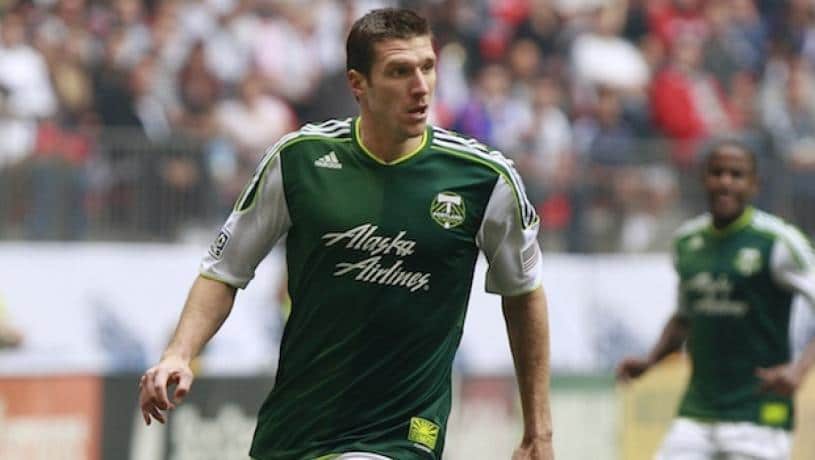
The original NASL Timbers went through fluctuations in success and eventually dissolved in 1982 as the league struggled and contracted. However, the spirit of soccer in Portland did not wane. The Timbers were revived in various forms, notably in 1989 and again in 2001, competing in lower-tier American soccer leagues such as the Western Soccer Alliance and the USL First Division. These iterations of the Timbers continued to cultivate a devoted following and maintained the city’s soccer enthusiasm, laying the groundwork for the team’s eventual leap to a bigger stage.
The significant turning point in the club’s history came in 2009 when Major League Soccer (MLS) announced that Portland would receive an expansion franchise to begin play in 2011. This announcement was met with great excitement, as it signified the return of top-tier soccer to Portland and the rebirth of the Timbers. Significant investments were made to renovate Providence Park, the historic stadium in downtown Portland, ensuring that the team would have a fitting home to match its fans’ fervor.
The Timbers’ MLS era began with promise as they looked to establish themselves among North America’s soccer elite. The club’s passionate supporters, known as the Timbers Army, became famous for their energetic and creative displays, creating one of the most intimidating and exhilarating matchday atmospheres in the league. The team’s identity was further solidified through local rivalries, most notably with the Seattle Sounders and Vancouver Whitecaps, which became known as the Cascadia Cup matches, adding a competitive regional narrative to their seasons.
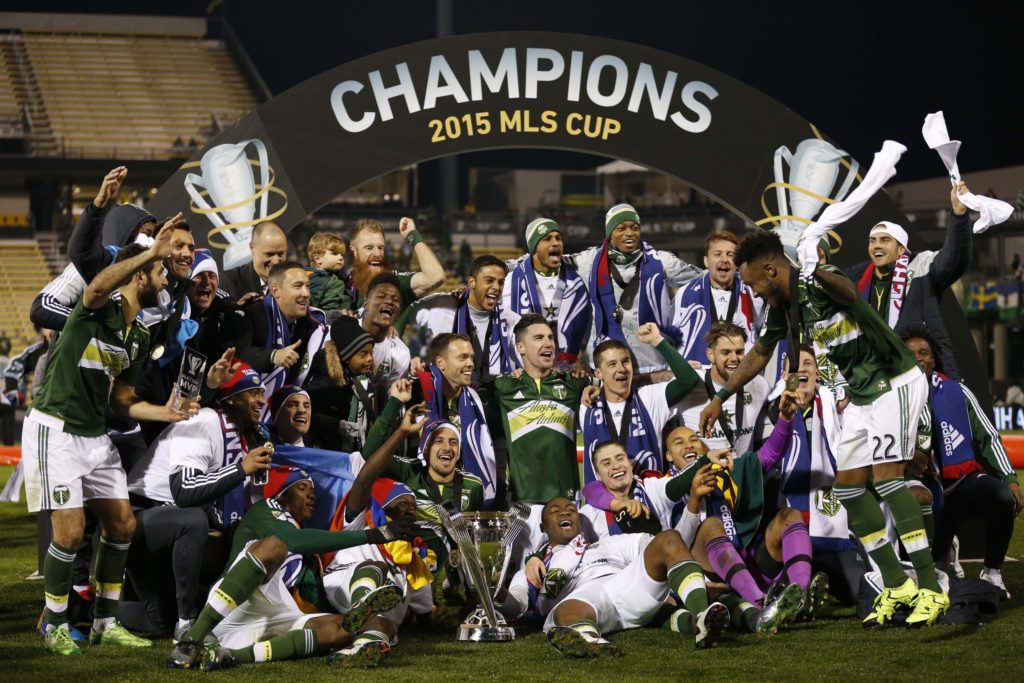
Success on the field came as the Timbers rapidly developed into a competitive side within MLS. In 2015, just their fifth season in the league, Portland clinched their first MLS Cup, defeating Columbus Crew in the final. This victory was a monumental achievement for the club and its fans, validating the city’s long-standing passion for soccer and the organization’s efforts to build a successful team. Following this triumph, the Timbers continued to be a competitive force in the league, regularly qualifying for the playoffs and continuing to build their profile and legacy.
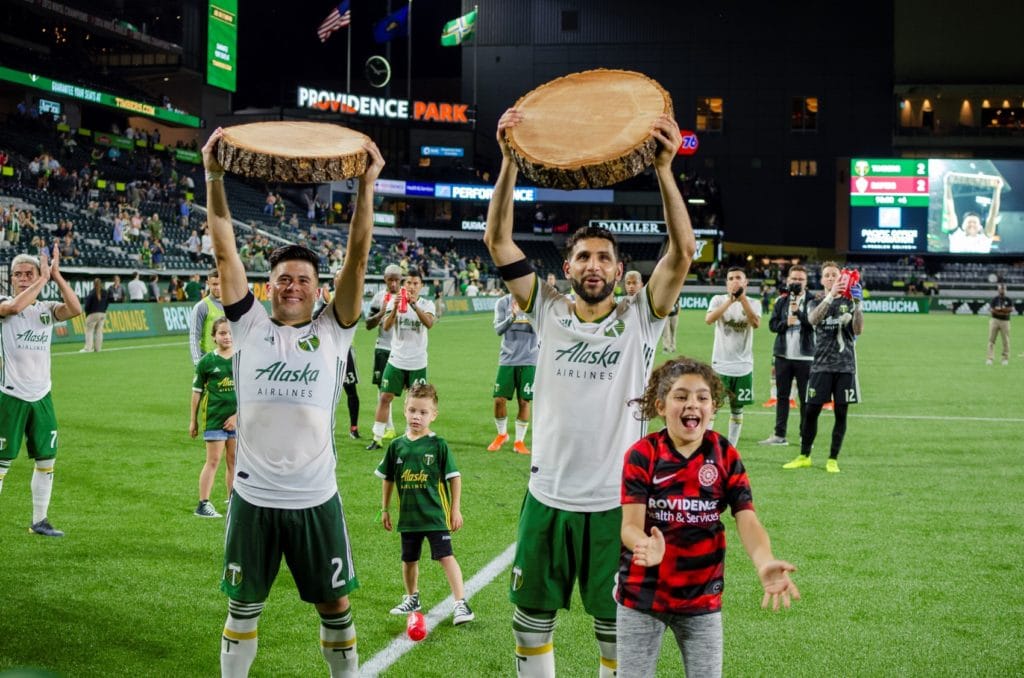
The Portland Timbers have remained an integral part of MLS, with a strong focus on community, sustainability, and fostering local talent. The club has continued to invest in its academy system and infrastructure, aiming to develop homegrown players and maintain competitive standards. The Timbers’ history, marked by passionate fans, iconic moments, and on-field success, illustrates the deep roots of soccer in Portland and the club’s ongoing commitment to growth and excellence in American soccer.
Portland Timbers Youth Development System
The Portland Timbers and Oregon Youth Soccer Association (OYSA) have a new integrated and innovative youth development program, which has become the foundation of the state’s Olympic Development Program (ODP) and the Portland Timbers of MLS’ youth academy. The program provides elite youth players advanced training and competitive opportunities throughout Oregon.
The collaborative program between the Timbers and OYSA provides the state with a nationally recognized boy’s and girl’s ODP program as well as a top-flight academy system to develop home-grown talent. The new program is designed to coexist with youth clubs and share in player development, allowing players to stay connected to their local clubs.
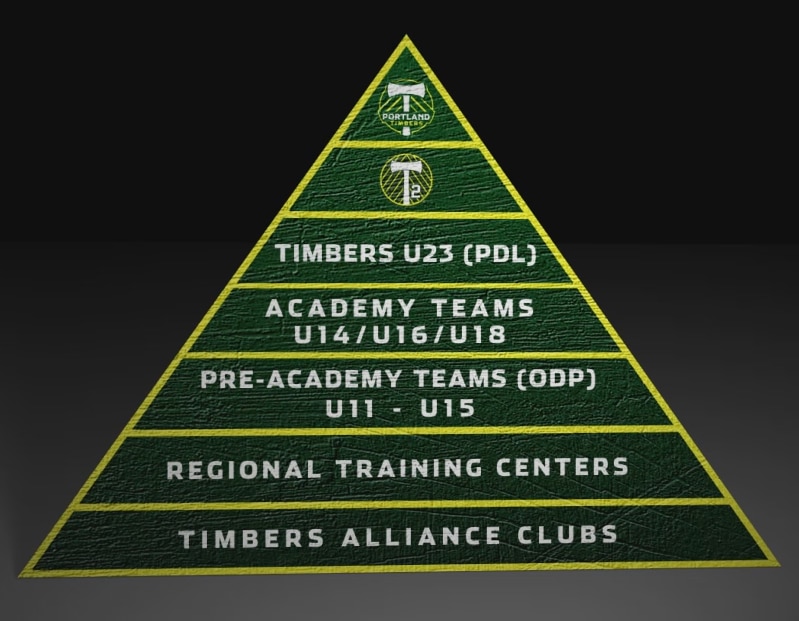
Overseeing the Timbers youth programs are Youth Sporting Director Mike Smith and Timbers Academy Technical Director Larry Sunderland. The Timbers Academy frequently asked questions (FAQ) can be found below.
One of the new major components of the ODP program is the establishment of six regional training centers, which are organized and managed by the Timbers and OYSA. The training centers are located in the cities of Beaverton, Bend, Eugene/Salem, Gresham, Medford and Vancouver, Wash. Starting each fall, each center targets elite male players in the U-12 to U-15 age groups in each area. From these training centers, a pool of players are chosen to form a state ODP team at the various age levels for regional and national competitions. This program enables the Timbers and OYSA to aid in player development in conjunction with local clubs.
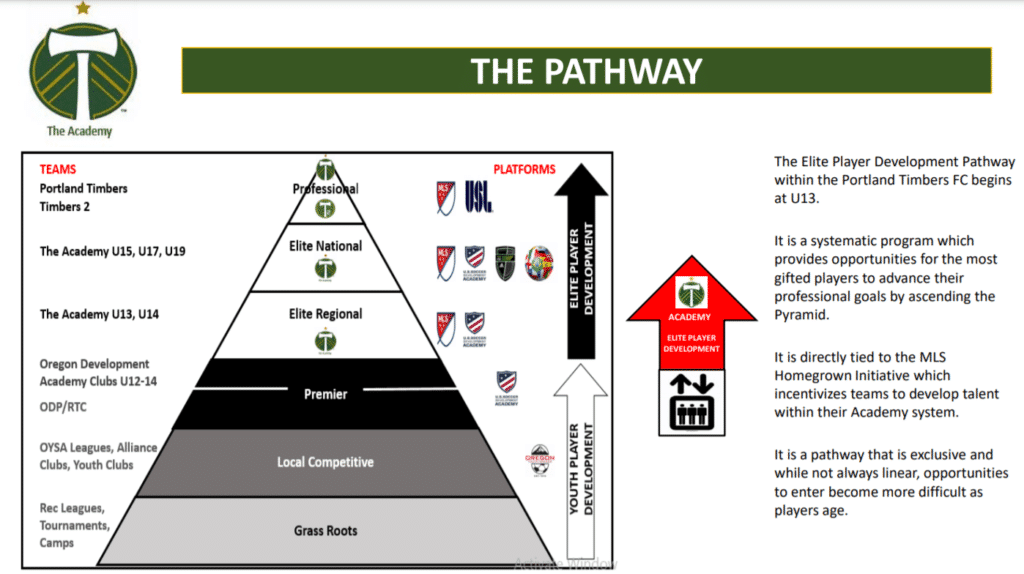
Timbers Academy teams are formed at the U-14, U-16 and U-18 age groups, and compete in U.S. Soccer Developmental Academy leagues. Led by club-endorsed coaches, the Timbers Academy system identifies and develops the top youth players in the state at these age levels and provides direct exposure to U.S. National Team coaches. The formation of the Timbers Academy teams will occurred in the late Spring of 2012.
The pinnacle of the Timbers Academy system is the club’s top development team, the Portland Timbers U-23s, which competes in United Soccer Leagues’ Premier Development League (PDL).
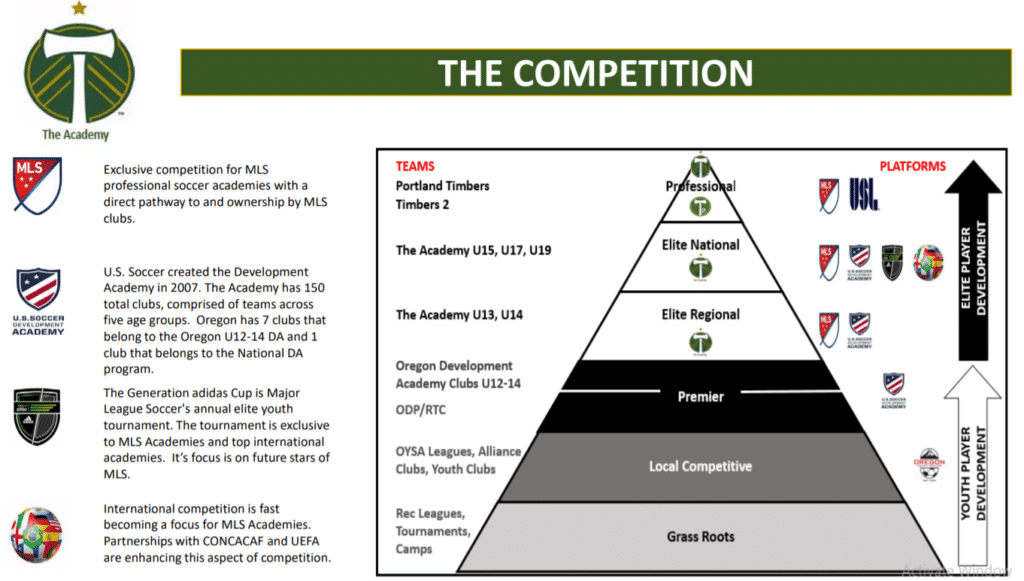
What is the mission of the Portland Timbers Academy?
As an organization, the Portland Timbers are committed to youth development. Our Academy program provides a professional environment pushing players to learn and elevate their game on a daily basis. Our goal as an MLS Academy is to develop professional players. Along the way, players will be provided the rarest of opportunities
and be exposed to the highest levels of competition. The many who don’t make the professional ranks are often awarded scholarships to top universities. In addition to these opportunities, our program is focused on developing character traits that will help guide players toward a successful career in whatever they may pursue.
How much does the Portland Timbers Academy cost?
The Timbers Academy spend in the range of $10,000-$15,000 per player per year. These costs include training gear, field usage, coaching, and all costs of travel. The program is considered fully funded with the exception of a $500 bond given by each player at the beginning of the year. There may be additional costs for unforeseen circumstances, but will be optional
How to tryout for Portland Timbers?
Beginning in 2019, the Timbers Academy will no longer operate tryouts as typically recognized in the youth soccer market. It is the position of the Timbers Academy that ongoing identification and evaluation is a far more productive and valuable method of finding top talent in our territory.
Regular scouting of key age groups is, and has already been taking place. Over the next few months, Timbers Academy Staff will be collaborating with youth club DOC’s regarding players who have been identified by our scouts and recommended for training/evaluation opportunities. Our goal is to provide an evaluation that will lead to selection and inclusion in the Timbers Academy.
Timbers Academy staff has already started the process and have had ongoing communication with numerous youth clubs in our area. Regular scouting of key age groups has taken place and will continue. Youth club players have been training alongside Timbers Academy players and the evaluation process is ongoing. DOC’s please let the Academy Staff know if you believe you have a special player. We will market each full time player and the club that they came from. In addition, if you as a player, would like and think that you are deserve a tryout, please contact your club DOC for a recommendation.
Below is an outline of the process Timbers Academy Staff will follow when identifying and offering a player a training/evaluation opportunity:
- Player identified through Academy scouting or club recommendation.
- Academy staff communication to youth club DOC/Coaches requesting player availability for training/evaluation with the Timbers Academy.
- Academy Staff/Youth Club DOC/Player work collaboratively to secure dates for training/evaluation with the Timbers Academy.
- Communication throughout the process between Academy Staff and youth club DOC.
What is the overall Academy commitment timeframe?
The Portland Timbers Academy season runs 10 months of the year. Typically, the players get the month of July and most of December off. Over the other 10 months, Timbers Academy players are expected to take advantage of an elite player development environment in order to excel not just as an individual, but as a team. Every day
must be looked at as a day to improve or the opportunity being presented is wasted.
The Academy typically train 4 times a week with games on the weekend. There are lifting sessions, training sessions, individualized training and video at different times throughout the week. Each player will undergo physical development tests in order to minimize overtraining and injury. These physical results are built into our annual periodization model. Most games are over weekends with several weekends having double fixtures. There are also several weekends the players will have free.
Portland Timbers Camps

To learn more about upcoming camps, please click here.
Portland Timbers Alliance Clubs
Adidas Portland Timbers Alliance Clubs
What is the adidas Portland Timbers Alliance?
The alliance is a strategic partnership with elite local youth clubs in the Portland Timbers’ development territory, designed to build unique working relationships and development opportunities to help channel the top youth players towards the Timbers’ development programs and the Timbers Academy.
As part of the alliance, the Timbers share coaching resources and curriculum with alliance clubs in the development of both boys and girls youth players. Additionally, youth clubs in the alliance will be allowed the unique privilege of incorporating the Timbers brand into their club name and wear a special adidas Timbers Alliance badge as part of the uniform. On the field, each alliance club will wear the same color jerseys – red and white – in recognition of the partnership with the Timbers.
Youth players from across the Timbers development territory, not just affiliated with an adidas Timbers Alliance club, all have the opportunity to try out for a Timbers Academy team or a place in one of the Regional Training Centers throughout the state as well as the Olympic Development Program.
Who are the Alliance Clubs?
Albuquerque United Timbers & Thorns
Billings United Timbers & Thorns
Learn more about the adidas Portland Timbers Alliance at www.timbersalliance.com.
Portland Timbers Affiliates
Portland Thorns Development Academy
The Portland Thorns Academy is an elite training program for girls and young women.
The Head Coaching Staff for the Portland Thorns Academy are all A or B licensed coaches.
The difference between the Portland Thorns Academy and other programs is our holistic approach to player development and integration of attributes of the Portland Thorns FC to the training of these young athletes. The Thorns Academy will have direct interaction with the Portland Thorns FC, which includes opportunities to observe their training, interaction with players, observation by First Team coaching staff, and tickets to Portland Thorns FC home games.
Integrated into player development will be nutrition, sports psychology, strength conditioning, speed and agility, overall fitness, and increased training.
The goal for all Portland Thorns Academy and Pre-Academy youth players is to reach their peak performance as elite, well rounded athletes. The focus will be on giving players the opportunity to earn collegiate scholarship offers, national team invites, and the chance to be drafted into the NWSL. In the 2019/2020 season alone, three Portland Thorns Academy players received invitations to National Camps.
To learn more about the Portland Thorns, please click here.
Portland Timbers II
To learn more about the Portland Timbers II, please click here.
Portland Timbers Recruitment Trials
At the time of this writing, there is an official trial form for the Portland Timbers. Please click here to visit their official web page for the trials. (Link inactive: update March 2023). Come back to this page while we monitor for any additional news.
CREATE A FREE RECRUITMENT PROFILE
Click the ‘LEARN MORE’ button below to take your career to the next level and create a fcscout.com recruitment portfolio to help clubs, coaches, agents, and scouts easily find you. For a limited time, we are offering this service for free!
Portland Timbers Colors & Badge
The Portland Timbers’ primary colors are green and gold. These colors are deeply ingrained in the team’s identity and are prominently featured in their uniforms and fan merchandise. The green symbolizes the lush forests of the Pacific Northwest, while the gold represents the team’s striving for excellence and success.
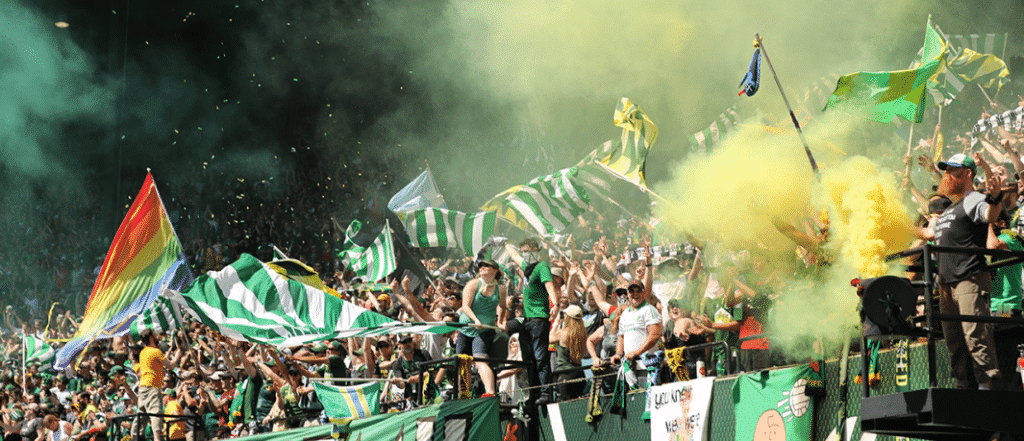
The badge of the Portland Timbers is distinct and symbolic, reflecting the team’s connection to the city of Portland and its natural surroundings. The central element of the badge is a circular, axe-shaped design, which pays homage to the logging industry, a significant part of the region’s history and culture. This axe element is a nod to the “Timbers” name and serves as a symbol of strength and resilience.
The badge incorporates the team’s primary colors, with green predominantly used in the background and gold for the axe and text, creating a striking and recognizable emblem. The circular shape and use of traditional colors and imagery are designed to represent the unity and community spirit of the Timbers and their fans.
Portland Timbers Kit
The Portland Timbers’ kit design reflects the team’s colors and identity, incorporating green, gold, and sometimes white, depending on the season and the specific kit edition (home, away, or third kits). The primary or home kit typically features a dominant green color scheme, echoing the lush forests of Oregon and the team’s main color. This green is usually paired with gold accents, such as stripes, trim, or the Adidas logo and team crest, highlighting the team’s secondary color.
The away kit often varies more from season to season but generally utilizes colors that contrast with the home kit, often featuring more white or incorporating the secondary gold color more prominently. These designs aim to maintain a connection with the team’s identity while offering a distinct look from the home attire.
Details such as the team badge, sponsor logos, and Adidas branding are standard on both home and away kits. The Timbers’ kits also often feature subtle nods to local culture or team history, such as patterns or symbols that represent the city of Portland or the state of Oregon.
Additionally, MLS teams frequently update their kits, introducing new designs every season or two, so while the general color scheme and themes remain consistent, specific details and styles may vary year by year.
Portland Timbers Stadium
The Portland Timbers play their home games at Providence Park, a historic venue located in the Goose Hollow neighborhood of Portland, Oregon. This stadium is one of the oldest professional sports facilities in the United States, with its original construction dating back to 1926. However, it has undergone numerous renovations and updates over the years to meet modern standards and accommodate the Timbers’ passionate fan base.
Providence Park is known for its unique, intimate atmosphere and close proximity of the fans to the action on the field, which contributes to the intense and lively matchday experience. The stadium has a seating capacity of over 25,000, making it one of the larger soccer-specific venues in Major League Soccer. The design retains some of the historical elements of the old stadium while integrating modern amenities and features to enhance the fan experience.
One of the most distinctive features of Providence Park is the steep, tiered seating in the stadium’s east side, known as the “Timbers Army” section. This area is reserved for the most fervent supporters of the Timbers, and it’s renowned for its vibrant, non-stop chanting, singing, and flag-waving throughout matches. The atmosphere generated by the Timbers Army is considered one of the most electric in North American soccer.
The stadium’s location in downtown Portland also means that it is easily accessible by public transportation, making it a central hub on match days. In addition to soccer, Providence Park has hosted a variety of other sporting events, concerts, and community events, making it an integral part of Portland’s cultural and sporting landscape.
Portland Timbers Club Culture
The club culture of the Portland Timbers is one of the most distinctive and vibrant in Major League Soccer, deeply influenced by the city’s passionate soccer community and the unique spirit of Portland itself. This culture is characterized by several key elements:
1. Timbers Army: The heart of the Timbers’ culture is the Timbers Army, the independent supporters group known for their unwavering support, elaborate tifos, and non-stop singing and chanting throughout matches. The Timbers Army is more than just a group of fans; they are a community committed to supporting the team, engaging in charitable works, and fostering an inclusive environment. Their presence creates an intimidating atmosphere for visiting teams and an exhilarating experience for home supporters.
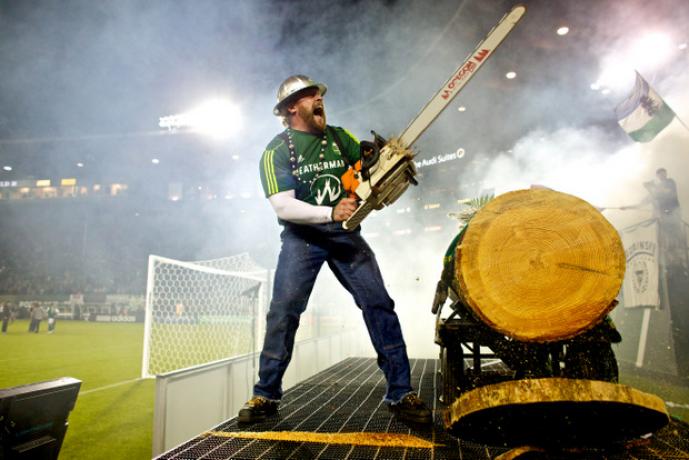
2. Community Engagement: The Portland Timbers are deeply rooted in the local community. The club and its supporters engage in various community service activities, from environmental initiatives to educational programs. The organization’s commitment to social responsibility and community involvement is a significant part of its identity.
3. Rivalries: The intense rivalries with Pacific Northwest clubs, particularly with the Seattle Sounders and Vancouver Whitecaps, are central to the Timbers’ culture. These rivalries are some of the most heated and well-attended matches in MLS, with a rich history and regional pride at stake, contributing significantly to the club’s culture and identity.
4. Environmental Consciousness: Reflecting the city’s strong environmental ethos, the Timbers promote sustainability and environmental awareness. This commitment is reflected in various club operations and initiatives aimed at reducing environmental impact and promoting sustainability.
5. Inclusivity and Diversity: The Timbers pride themselves on fostering an inclusive environment where all fans, regardless of background, feel welcomed and valued. This inclusivity extends to support for various causes and communities, aligning with Portland’s broader cultural values.
6. Creative Expression: The creativity of Portland’s residents is mirrored in the culture of the Timbers’ fan base. From unique chants and songs to creative and often humorous tifos, the Timbers Army and the wider fan base bring a distinctive flavor to MLS, showcasing the city’s artistic spirit.
7. History and Tradition: Despite being a relatively young team in MLS, the Timbers draw on a rich soccer history that dates back to the NASL days. The club and its supporters cherish this history and incorporate it into their traditions, contributing to a deep sense of identity and continuity.
In summary, the culture of the Portland Timbers is a reflection of Portland itself—eclectic, passionate, community-oriented, and inclusive. This culture not only makes attending a Timbers game a unique experience but also cements the team’s place as a fundamental part of the city’s social fabric.
Portland Timbers Home City
Portland, Oregon, the home city of the Portland Timbers, is known for its vibrant culture, lush greenery, and progressive values. Nestled in the Pacific Northwest, Portland boasts a unique blend of natural beauty, urban creativity, and community-oriented living. Here are some key aspects that define Portland:
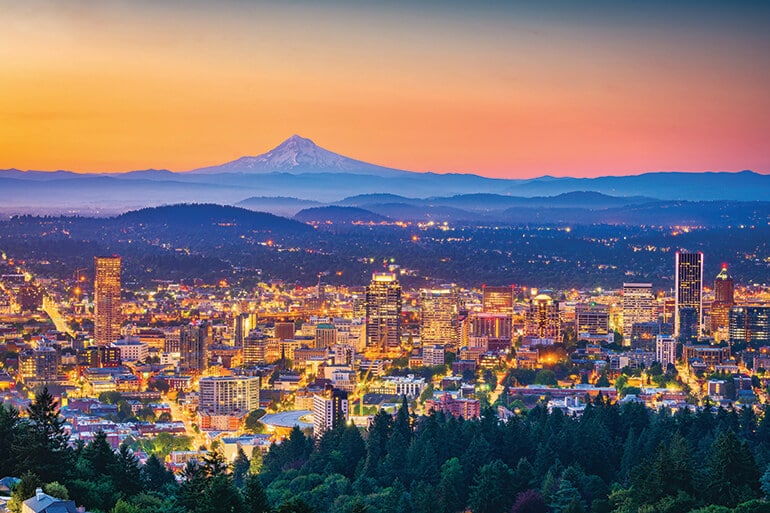
1. Natural Beauty and Outdoor Activities: Portland is surrounded by breathtaking natural landscapes, including forests, rivers, and mountains. This setting provides residents and visitors alike with numerous outdoor activities, from hiking and biking on the many trails to kayaking and fishing in the local waterways. The city is also a short drive from the scenic Oregon coast and the majestic Mount Hood.
2. Cultural and Creative Hub: Portland is widely recognized for its thriving arts and music scenes, as well as its wealth of independent businesses, including bookstores, coffee shops, and breweries. The city is known for fostering creativity and supporting local artists, musicians, and entrepreneurs, contributing to its reputation as a hub of innovation and culture.
3. Environmental Consciousness: Portland is often cited as one of the greenest cities in the United States, with a strong commitment to sustainability and environmental protection. The city has extensive public transportation options, numerous parks and green spaces, and community initiatives aimed at preserving the environment.
4. Food and Drink: The culinary scene in Portland is renowned for its diversity, quality, and innovation. The city boasts an impressive array of food carts, local restaurants, and microbreweries, offering everything from gourmet dining to international street foods. The coffee culture in Portland is also notable, with many local roasters and cafés.
5. Progressive Values: Portland is known for its progressive politics and open-minded population. The city is a welcoming and inclusive community, with a strong focus on social justice, equality, and community activism.
6. Quirky and Eccentric Character: Portland’s unofficial motto, “Keep Portland Weird,” reflects the city’s embrace of individuality, eccentricity, and non-conformity. This spirit is evident in local festivals, art, and everyday life, contributing to the city’s unique and endearing character.
7. Sports and Recreation: Beyond soccer and the Timbers, Portland is home to a passionate sports community, supporting a range of professional, semi-professional, and amateur sports teams. Outdoor recreation is also a significant part of the city’s culture, with residents participating in a variety of sports and activities year-round.
Overall, Portland’s combination of natural beauty, cultural richness, progressive values, and community-oriented lifestyle makes it a unique and appealing place to live and visit, and provides a supportive and vibrant backdrop for the Portland Timbers and their fans.
Explore More Clubs
CREATE A FREE RECRUITMENT PROFILE
Click the ‘LEARN MORE’ button below to take your career to the next level and create a fcscout.com recruitment portfolio to help clubs, coaches, agents, and scouts easily find you. For a limited time, we are offering this service for free!

